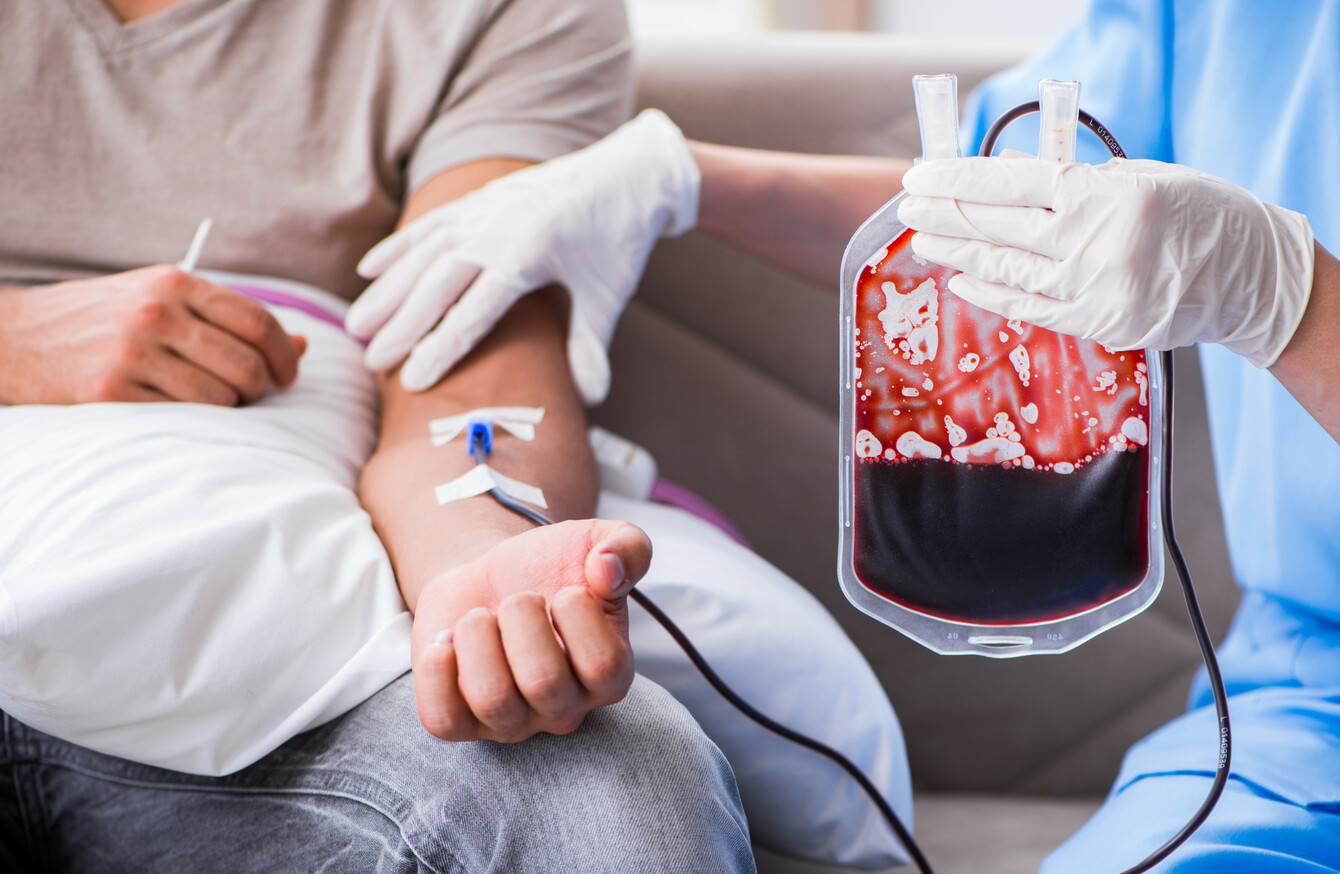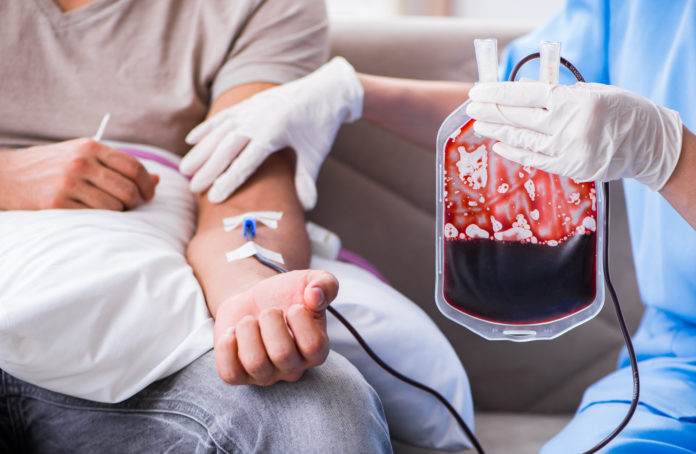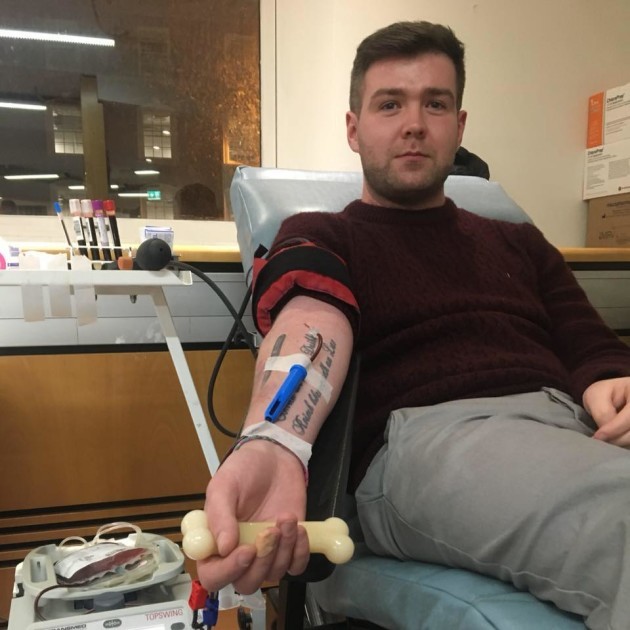

CAMPAIGNERS HAVE THIS week criticised the need to import blood from Britain without addressing restrictions on Irish gay and bisexual men from donating blood.
On Wednesday the Irish Blood Transfusion Service (IBTS) announced it was importing a bulk consignment of blood from the UK for the first time since the late 1990s due to a current shortage in supply.
115 units of Rh negative blood groups – O negative, A negative and B negative – were collected from the NHS Blood and Transplant in Manchester on Friday.
The IBTS has not imported blood in bulk since the late 1990s. The IBTS does occasionally import a small number of rare blood units, however.
Ireland imposes harsher restrictions on gay & bi men who wish to donate blood than most other European countries.
We repeat our call for blood donation to be based solely on individual behaviours, not gender/sexuality. #blood #BloodBan @Giveblood_ie @roinnslainte #Pride https://t.co/SWSh12PwOO
— NXF (@nxfie) June 30, 2021
A campaigner and two groups representing gay men and men who have sex with men have criticised the importation. They said that while gay men can donate blood in the UK, the IBTS has certain restrictions.
The IBTS formerly had a lifelong deferral for men who have sex with men (MSM), but this was changed to a one-year deferral in the last five years.
This means that a man whose last sexual contact with another man was more than 12 months ago will be eligible to donate if he meets the other donor selection criteria.
Tomás Heneghan, who took a High Court action to compel the Government to change the restriction, said that it was “incredibly frustrating” to watch the issue play out.
“I would imagine at least some of what is coming in would be from men who are taking up the opportunity for the first time. I think it is very likely to be blood from gay men.
“I am incredibly frustrated watching this play out. They have made a change in Britain and also in the North,” he said.
Tomás believes that the cause of the Irish restrictions is an institutional fear of an unforeseen problem.
“There is no science to the Irish situation, no rationality to it, it doesn’t make any sense.
“I have asked myself the question why for many, many years and I have asked the blood service and other people and I have never got a satisfactory answer to it. My suspicions are a number of factors especially institutional fear what happened in the 80s and 90s with blood transfusion scandals.
“The two things do not connect, the institutional fear is that it could happen again. I understand that the 80s and 90s scandals were more about other types of donors in the US.
“They have a fear of getting sued again by numerous plaintiffs,” he explained.
Caution
Bill Foley, the secretary of the Gay Health Network, supported Tomás’ view that risk aversion was a cause of the IBTS stance.
“It is down to an abundance of caution,” he said.
“Covid is a good example of how medics approach risk. In Ireland there has been a very cautious approach.
“In terms of HIV there are specific modes of transmissions, people can identify if they were at risk. A blanket ban is discriminating in itself and should be re-examined,” he said.
Your contributions will help us continue to deliver the stories that are important to you
The IBTS has said that there is a serious shortage of blood in Ireland due to the pandemic.
It said that a full risk assessment was carried out before importing the blood from the UK and said there was only “a remote risk” of transmitting an infection by transfusing imported blood.
Asked about donor risk, the IBTS said:
“The NHSBT has recently changed the way it assesses donor risk. The IBTS is currently undertaking a social behaviours review looking at our existing deferral practice across a number of areas, including MSM.
“That process is on-going and we hope to have it concluded in the autumn. When we have recommendations to make to the IBTS Board on these risks we will do so and the decision will be made public.”
The Department of Health also said in a statement that the IBTS “blood safety standards set down in EU Blood Directives, this decision poses no risk to the national blood supply”.
“The Department is satisfied that this action [of importing blood] was necessary to supplement the blood supply while the IBTS undertake measures to increase attendance for appointments at blood donation clinics.
“The action taken will mitigate the potential impact of low supplies of Rhesus Negative blood on patient care,” the Department said.
The National LGBT Federation did not respond to a request for comment.









